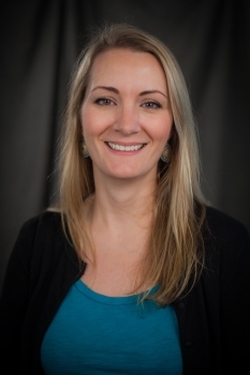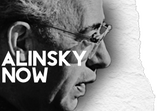Reflections on Democratic Education Organizing
A Continuing Dialogue by Jenny Whitcher, PhD
Director, Master of Social Change Program, Iliff School of Theology
Director, Master of Social Change Program, Iliff School of Theology
 Jenny Whitcher, PhD
Jenny Whitcher, PhD
5.03.15
All, I am enjoying this conversation and agitation around our collective work. In looking at the whole of the conversation there are three areas I will engage: 1) Critical hope versus fatalism, 2) Praxis examples of integrated relational organizing and agency-centered democracy, 3) Accepting the challenge. Frank, thank you for lifting up our work at Iliff in your email. I also appreciate Aaron's charge to Harry at the end of his email, it reminds me of an encounter with Greg Galuzzo, former ED of the Gamaliel Foundation, who told me, "[Universal] you cannot organize in higher education," at their weeklong organizing training eight years ago. I was sent to the training by my employer, the University of Denver, and myself and two colleagues were the only people representing educational institutions. Well, yes we can and are. I will share parts of my story here and let other colleagues speak for themselves, as there are many on this email thread who I consider democratic organizers and important agents of change in higher education and cultural organizations.
I agree that there are many challenges to creating democratic education, professionals, and institutions. However, there is hope and I deny fatalistic thinking, perhaps because I cannot operate from such space and still look forward vocationally, but more importantly because there are too many signs of progress. One sign is a flat out refusal to participate in the existing anti-democratic structures of society particularly within the Millennial generation as noted by research focused on voting practices and Millennial efforts to create and imagine new ways of engaging within and outside of traditional institutions. I am currently researching the later around Vocations of Social Change within theological education nationally with colleague Trudy Hawkins Stringer of Vanderbilt Divinity School.
I do not believe in universal generational identities. However, generational language can be useful in terms of understanding that in their youth and young adult years, each generation reverberates the call of the times due to their general mobility and freedom from more deeply entrenched social and economic structures such as marriage, family, career, and care of aging parents. This applies to youth and young adults who have systemic privilege, those who have pressures from systemic oppressions, and those who experience intersectional privilege and oppression. Generally, youth and young adults are in a life cycle where they are more readily able to respond to life with, "Why not?" or "What else?" This fluidity, freedom, and what some call idealism, is a trademark of the youth and young adult life cycle that allows each generation to amplify through their actions the call and response of the contemporary social context.
The following reflections refer to the Millennial generation, but as a megaphone for the call of our current context, and therefore include people from all ages. I work at a graduate theology school where the average age of all students is 42, and 33 within the Master's of Arts in Social Change degree program that I direct. I am in contact with students across degrees in courses I teach and through my role in the Office of Professional Formation which engages students from our three professional degrees in our Professional, Personal, and Spiritual Formation Curriculum. I am in relationship to local leaders within congregations, denominations, nonprofits, government agencies, labor organizations, and businesses through this Office and efforts to build a local organization of the IAF in Metro Denver/Colorado. These are the people and relational contexts that inform my reflections on praxis below.
All, I am enjoying this conversation and agitation around our collective work. In looking at the whole of the conversation there are three areas I will engage: 1) Critical hope versus fatalism, 2) Praxis examples of integrated relational organizing and agency-centered democracy, 3) Accepting the challenge. Frank, thank you for lifting up our work at Iliff in your email. I also appreciate Aaron's charge to Harry at the end of his email, it reminds me of an encounter with Greg Galuzzo, former ED of the Gamaliel Foundation, who told me, "[Universal] you cannot organize in higher education," at their weeklong organizing training eight years ago. I was sent to the training by my employer, the University of Denver, and myself and two colleagues were the only people representing educational institutions. Well, yes we can and are. I will share parts of my story here and let other colleagues speak for themselves, as there are many on this email thread who I consider democratic organizers and important agents of change in higher education and cultural organizations.
I agree that there are many challenges to creating democratic education, professionals, and institutions. However, there is hope and I deny fatalistic thinking, perhaps because I cannot operate from such space and still look forward vocationally, but more importantly because there are too many signs of progress. One sign is a flat out refusal to participate in the existing anti-democratic structures of society particularly within the Millennial generation as noted by research focused on voting practices and Millennial efforts to create and imagine new ways of engaging within and outside of traditional institutions. I am currently researching the later around Vocations of Social Change within theological education nationally with colleague Trudy Hawkins Stringer of Vanderbilt Divinity School.
I do not believe in universal generational identities. However, generational language can be useful in terms of understanding that in their youth and young adult years, each generation reverberates the call of the times due to their general mobility and freedom from more deeply entrenched social and economic structures such as marriage, family, career, and care of aging parents. This applies to youth and young adults who have systemic privilege, those who have pressures from systemic oppressions, and those who experience intersectional privilege and oppression. Generally, youth and young adults are in a life cycle where they are more readily able to respond to life with, "Why not?" or "What else?" This fluidity, freedom, and what some call idealism, is a trademark of the youth and young adult life cycle that allows each generation to amplify through their actions the call and response of the contemporary social context.
The following reflections refer to the Millennial generation, but as a megaphone for the call of our current context, and therefore include people from all ages. I work at a graduate theology school where the average age of all students is 42, and 33 within the Master's of Arts in Social Change degree program that I direct. I am in contact with students across degrees in courses I teach and through my role in the Office of Professional Formation which engages students from our three professional degrees in our Professional, Personal, and Spiritual Formation Curriculum. I am in relationship to local leaders within congregations, denominations, nonprofits, government agencies, labor organizations, and businesses through this Office and efforts to build a local organization of the IAF in Metro Denver/Colorado. These are the people and relational contexts that inform my reflections on praxis below.
|
Coming from critical hope that it is both possible and difficult to co-create democratic education, professionals, and institutions, here are a few key areas that need attention and serve as roadblocks to our efforts:
|
IAF Lead Organizer Paul Turner has been working with the Colorado Education Association (CEA) in some of our most difficult, non-democratic school board districts whose elections are backed by big money including the Koch brothers: Brighton and Jefferson County--you may have heard about the later in the national news with students organizing to protest curricular decisions of the education board. An example of the impact of this democratizing work is that one of our IAF-CO colleagues was so effective as president of the Brighton Education Association that he was recently "promoted" to be president of the Jefferson County Education Association, an even more difficult political environment. Another IAF-CO CEA colleague was recently re-elected in a tight election. These leaders are learning and practicing relational organizing in order to create democratic capacities and reclaim public education in some of the most vitriol and devastating political environments in a state that operates as a petri dish for public education reform.
Iliff School of Theology has made a $5,000 commitment to the Sponsoring Committee of IAF-Colorado, we think this is the first time that a higher ed institution has come in as a founding co-sponsor member institution of a local IAF organization--I hope it is just the beginning of such collaborative organizing and public work. From my perspective, Iliff's commitment is based on two primary interests that relate to the framework of our email thread:
Three years ago I re-developed the Master's of Arts in Social Change curriculum to include a Community Organizing course as a core degree requirement and re-fashioned the Internship Seminar to use organizing practices as assignments. These two courses follow one another in the curriculum (Spring, Summer). This past fall the institution announced a change to the degree program title and leadership. Students who had just been through the sequential Community Organizing course and Internship Seminar started organizing. They have done an excellent job of cooling down their hot anger to identify a root cause and take action. They engaged the institution and its leadership relationally, held them accountable to transparent communication moving forward, and co-created a new tradition of Community Meal & Conversation with co-sponsorship from Iliff's president. These gatherings are geared towards creating intentional community and structured conversation to address both the joys and issues within the institution. The students built support from being in relationship to Iliff's President who has a relational leadership style and attends regularly, along with students, staff, faculty, and trustees. Currently, this is the only "free space" at our institution that regularly convenes all of these institutional stakeholders. This process is at a transition point of learning how identify actionable issues and act together/do public work in response, in addition to the important practice of hearing and relating to one another. So far, the students have decided to keep their "Iliff Voices Matter" organizing effort separate from structural organization despite well-intentioned encouragement by some staff to become a student organization or for individual student leaders to run for student senate. The students have articulated their rationale not to associate as their understanding of structural power and the need to co-create public space that is not embedded within institutional power structures as a way to hold the institution accountable to its values through relationship, but not institutionalization. I hope they will see this as an opportunity for both/and, and that some of them will also run for student senate. Faculty and staff have identified and shared with me the institutional cultural changes they are feeling and seeing as a result of the relational organizing work of students, IAF-CO presence (Iliff hosts most of our monthly Colorado Organizing Team meetings and quarterly, community-wide Institutes for Public Life), and the addition to organizing in the curriculum. One such staff member recently asked if I would co-lead a training for student senate, which has succumbed to the pitfalls of #1-5 above. The institution is investing in the development of a more powerful and institutionally, democratically engaged student senate. An example of Mike Miller's comment to encourage student engagement and energy, which sometimes includes facilitating it. Other conversations with faculty have focused on understanding such engagement as a method of worship. This requires some theological re-orientation for some to imagine worship as the authentic practice of Christianity, which includes a re-visioning of the nice, fuzzy, pastel clothed image of white Jesus petting a lamb, to imagine Jesus based on his practice as a relational organizer of the people, building power to engage the power structures of his time toward justice. Leadership matters at all levels, and particularly at the top as many of us in higher ed know from experience. Iliff's president, Tom Wolfe, is instrumental in the cultural changes we are experiencing both directly and indirectly. There are two particular impacts of his presidency that come to mind in reflection of the framework of our email thread: 1) He practices and models relational leadership for others, 2) He actively supports "free space" and professional formation praxis both within and beyond our institutional context. There are plenty of time-honored critiques and fears of "how long will this last?" that could be thrown into the mix of these examples, but there is a difference between a programmatic experience and the experience of living within the process of cultural change. We are experiencing cultural change, both institutionally and more broadly. People-powered democratization is the reverberating call and response of our time. I am truly grateful for the agitation of colleagues like yourselves who also struggle with the efficacy of our efforts. My contribution to the book Democracy's Education, was a reflection on my own purpose and efficacy after years of listening over coffee to frustrated and traumatized former students who upon graduation entered the "world as it is," which appropriates the language of democracy, theology, and justice to oppressive ends. These students did not experience agency, nor the democratic institutions or professional lives we prepared them for, and it wasn't just a let down, it was spirit-breaking--both for the alumni and me. These relational meetings with alumni were my call to arms to think differently about my work, which oriented my efforts around the five points listed in this email, among others. It was also a paradigm shift from programmatic to systemic analysis and practice. I practice locally, or "in the margins" as Aaron mentioned, as a strategic tactic to engage and build capacity for broader cultural democratic change, which includes education, professionals, and institutions. |


